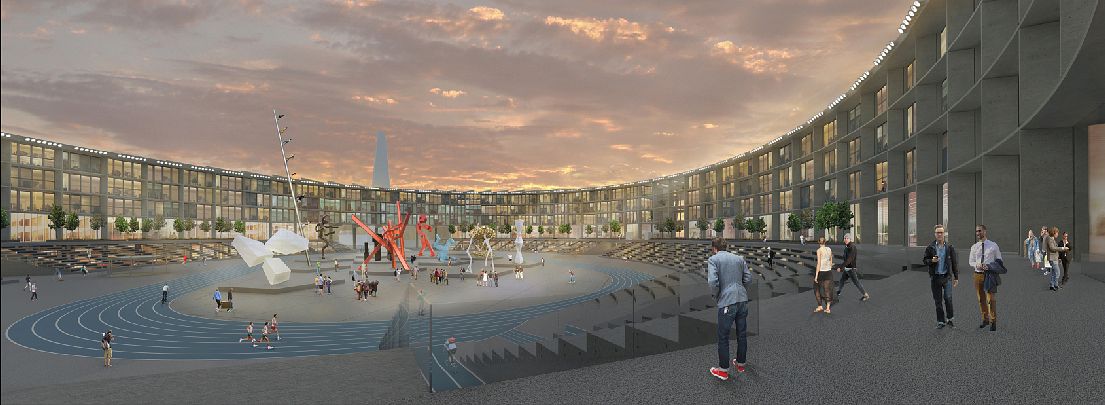Speakers at the recent ‘Engineering the Future Olympics’ symposium at the Faculty of Architecture outlined challenges and solutions for creating the huge infrastructures needed to host the world’s largest sporting event.
The organisers, TU Delft Sports Engineering Institute and the Royal Netherlands Society of Engineers, invited five speakers to present their Olympic expertise to around sixty students and staff last Monday. All speakers agreed on the need for integrating multiple perspectives and interdisciplinarity into the complex planning of the games and their after effects on the host city.
Integration
Yawei Chen, Assistant Professor in the Real Estate, Faculty of Architecture faculty, studies strategies for such mega events. She identified three key issues for Olympic success. First, the strategy for the games should be integrated with the urban development of the organising city. Next, organisational and financial challenges should be acknowledged. And finally, legacy benefits, such as city rebranding and urban and social regeneration, should be maximised.
Adaptable stadium
Architect Julius Kirchert, presented his and Jos Reinders’ graduation project on a regional concept for hosting the games in Denmark and Sweden. He insisted on the importance of aligning the organisation of the Olympics with long term regional planning, to combine functions and to design for flexibility. Their scheme included a visionary adaptable stadium which could later be turned into a park, offices, a zoo, or a huge car park.
Performance Simulation
Assistant Professor of Design Informatics, Michela Turrin, showed the potential of simulation software to do performance analyses on multi-use sports building designs to search for the best solutions. She emphasized that this technology should be used to inform the understanding of designers and engineers and not solely to automate the design process.
Comfort
Regina Bokel, Professor of Architectural Engineering and Technology, reviewed the special needs of athletes when practicing sports. She added that general comfort during the games should be optimised to prevent unhealthy circumstances and support top athletic performances. She also explained how the International Olympic Committee (IOC) is expanding its requirements for 2020 to include sustainability concepts and recognize the importance of the athletes’ experience.
Dutch scenarios
Willemieke Hornis, project manager on smart cities at the Ministry of Infrastructures and the Environment, described the government’s approach for the Dutch bid for the 2028 Olympics, which is momentarily shelved. They created several national Olympic scenarios to study meeting the technical demands, the effect the games can have on boosting existing infrastructure plans and how they can create quality and a lasting legacy. The Netherlands has no big cities like London and Rio, but its integrated regional models may influence the future demands of the IOC to allow more flexible proposals.



Comments are closed.